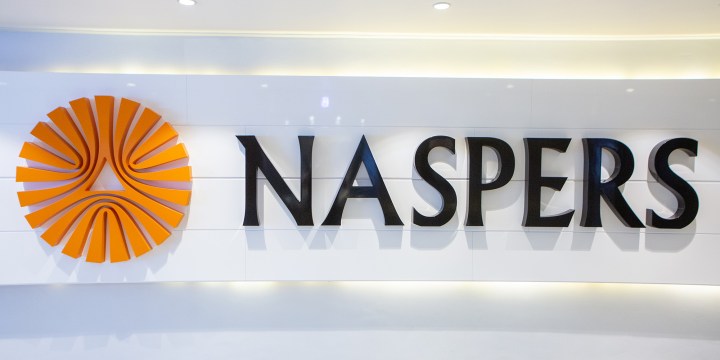COMPANIES
Naspers and Prosus pocket R122bn from Tencent share disposal

Naspers and its Amsterdam-based subsidiary have announced an update on their convoluted open-ended repurchase programme, through which they aim to unlock ‘immediate value’ for shareholders.
Shares in Naspers and Prosus surged by almost 5% on Wednesday after the companies announced an update on their open-ended repurchase programme, through which they are offloading Tencent shares.
The programme, announced on 27 June 2021, is aimed at “efficiently” unlocking immediate value for shareholders and increasing NAV [net asset value] per share over time.
In essence, the buyback programme allows Naspers-Prosus to fund other businesses (mostly startups, although the group said it has adapted to the new market realities by setting higher targets for M&A returns) around the world through dividends from Tencent, which suffered declining revenue for two consecutive quarters last year.
Prosus currently has a 26.9% stake in Tencent, down from 28.8% (worth about $128-billion) in June 2022.
‘Committed’ to Tencent
On 23 November, during the diversified media and technology group’s interim results announcement, CEO Bob van Dijk said they had invested heavily in some of their divisions and offloaded risky stakes in others, but were “absolutely committed” to remaining a very large shareholder in Tencent for a long time to come.
He said they were accelerating their path to profitability and that repurchasing their own stock was a “great use” of their capital: “Investing in Tencent and our own e-commerce portfolio at a 40% discount significantly improves NAV per share and creates permanent value that will compound over time.” Van Dijk said $15-billion of value had been created on announcement of the programme.
Earlier in November, Reuters reported that Tencent had planned to distribute $20-billion of stock in meal delivery giant Meituan in 2023, which triggered a selloff of Chinese internet stocks as investors feared more divestments by the online gaming business were in the offing.
The Chinese government cracked down on local tech giants last year for anti-competitive behaviour, which hit tech stocks hard, wiping billions of dollars off the value of giants including Alibaba, Baidu and Tencent, with the companies posting their slowest growth yet.
The Reuters report suggested the JD Group and Meituan dividends were likely to be aimed at buying goodwill with the Chinese government.
In effect, the Meituan plan meant a R100-billion boost for Naspers.
Naspers had already disposed of the JD Group in June last year, raising $3.7-billion from the sale.
But on Wednesday, Bloomberg reported Chinese shares were off to a strong start in 2023, as fears of isolationist policies gave way to signs that China was turning more investor-friendly.
The MSCI China Index rose 5.3% since trading resumed on Tuesday, marking the best start to any year since 2009, after losing nearly 24% in 2022, the Bloomberg report said, noting bullishly that China was looking like an “investor darling” once again.
‘Rough year’
On 6 December, during a Prosus and Naspers capital markets day presentation, chief investment officer Ervin Tu admitted that 2022 had been a “rough year” for the group and they weren’t satisfied with the profitability of the portfolio.
“Now at the moment, given the level of uncertainty risk we see in the market, the fact that private valuations haven’t yet corrected… and the level of discount we still see to our underlying NAV, we are opting to keep the bar high on investments and are shifting capital from our Tencent-funded buyback to manage our share count.
“A number of [tech] sectors over the course of the last year [are in a messy] downward trajectory… The valuation downdraft has hurt us everywhere.”
Tu said they weren’t satisfied: since 2008 – and not including Tencent – they invested $32-billion of gross capital, returned $11.3-billion and produced an 8% internal rate of return, which is 1.3 times multiple of investment capital (the ratio between the initial capital investment and the current market value of the asset) compared with 20% of recent years.
Visit Daily Maverick’s home page for more news, analysis and investigations
“We’ve been hit hard by the public market downturn and significant multiple contraction for high growth unprofitable businesses.”
The focus, therefore, is on regaining profitability, through the earnings performances of its businesses.
On Wednesday, in an update to shareholders, Naspers and Prosus said they would continue selling a small number of Tencent shares held by the Prosus group on the Hong Kong Stock Exchange.
A total of 24,801,128 Prosus shares have been sold, worth around R24.07-billion (or $1.37-billion), which have been applied to fund the Naspers repurchase programme.
The 193,433,800 Tencent shares sold are worth about HK$56.68-billion (R121.6-billion) to the group. BM/DM



















Comments - Please login in order to comment.